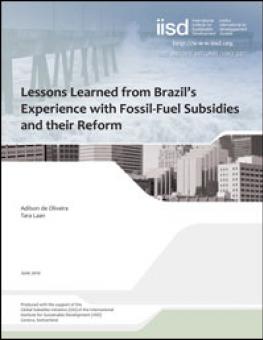
Lessons Learned from Brazil's Experience with Fossil-Fuel Subsidies and their Reform
Participating experts
You might also be interested in
Why Is Investment Treaty and Investor-State Dispute Settlement Reform Needed?
Why investment treaty and ISDS reform is critical for unlocking sustainable development.
State of Global Environmental Governance 2024
A review of environmental negotiations in 2024 explores the struggles for progress in a year of climate-fueled catastrophes and political turnover.
The State of BCAs 2025
As more countries boost their climate ambition, border carbon adjustments (BCAs) are emerging to curb carbon leakage, with the European Union, the United Kingdom, and others advancing their own mechanisms. This publication is the first of its kind taking stock of this trend.
February 2025 | Carbon Minefields Oil and Gas Exploration Monitor
In January 2025, 77 oil and gas exploration licences were awarded in seven different countries, with Norway leading in terms of embodied emissions.